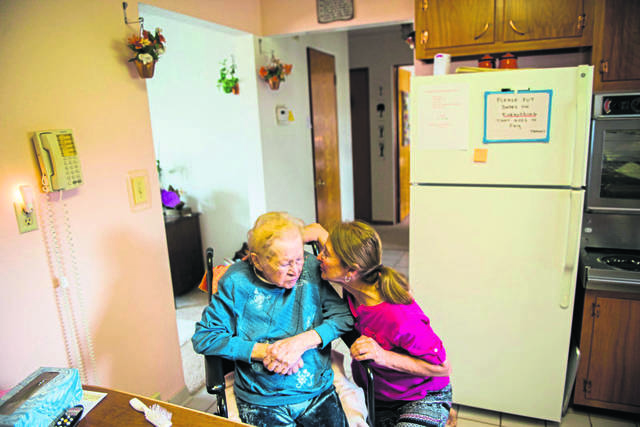A recent Tribune-Review story (“Lower Burrell woman’s story personifies failures in Medicaid waiver program,” July 13, TribLIVE) and editorial (“Medicaid waivers real roller coaster,” July 16, TribLIVE) detailed a family’s difficulty securing home care for an aging loved one. The story equates the staffing struggles as a personification of “failures in (the) Medicaid waiver program.” The Department of Human Services (DHS) appreciates the opportunity to provide further context to an issue that affects more than 400,000 Pennsylvanians.
There are serious challenges facing the home care industry and the direct care workforce. The number of people becoming eligible for home care services is growing rapidly, and recruitment and retention in the direct care workforce cannot keep up with this demand.
Low wages, inadequate benefits, few opportunities for professional growth and advancement, and stress of workloads is causing people to seek employment in other sectors at a time when these services are most needed. More than half of the direct care workforce use some sort of public assistance program, and many more qualify but do not use these programs, creating additional burdens for an already stressed workforce.
These challenges, however, are not a byproduct of any one program — this is a national issue.
The newly implemented Community HealthChoices (CHC) program was designed to support solutions to the crisis in the direct care workforce. These challenges in staffing long-term services and supports are pervasive across both fee-for-service and managed care models for service delivery through Medicaid and impact both community-based and nursing facility settings. These systemic challenges require the flexibility to implement innovative and multifaceted solutions. One of the key benefits in transitioning to a managed care model is the ability to prioritize and incentivize these innovations.
DHS has prioritized workforce innovation since the inception of CHC and requires the managed care organizations (MCOs) participating in the program to institute workforce initiatives that improve the recruitment, retention and skills of direct care workers. These initiatives may include but are not limited to enhanced payments and other incentives to providers, participant-directed employers, and direct care workers when education, training, and other initiatives designed to enable direct care workers to become a more integral member of the person-centered planning team are promoted.
The MCOs are also pursuing a standardized training curriculum for direct care workers across the long-term care continuum in order to provide educational opportunities that advance superior care and create a pathway for those looking to make a career in this critical field. The MCOs are also exploring ways to increase wages or provide other financial incentives to direct care workers, such as loan forgiveness, benefits, housing stipends, tax credits and peer support incentives.
In short, CHC was designed with this very challenging and pervasive problem in mind. We are committed to monitoring progress of this work and looking for new opportunities and methods to supporting the direct care workforce and the growing number of Pennsylvanians that rely on and benefit from their care.
Gov. Tom Wolf’s administration believes that all people deserve the opportunity to live and thrive in their homes among their family, friends and community. The direct care workforce is the foundation that makes this possible for a growing number of people — our parents, grandparents and loved ones. We must invest in a $15 minimum wage, training and opportunities to support the growth of this workforce just as they invest in our care and health.








